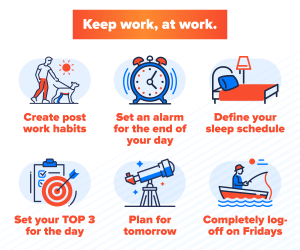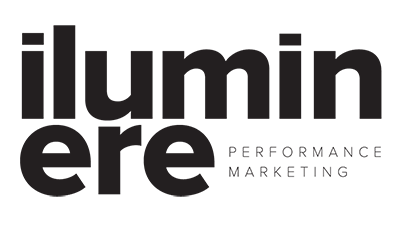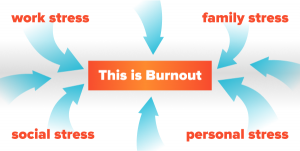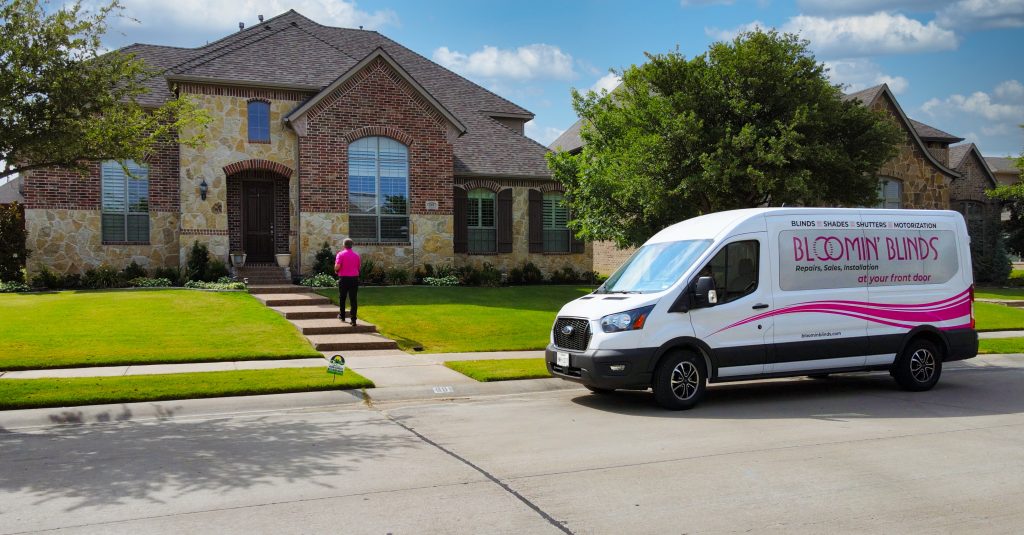You’re Going to Burn Out🔥
POV: You’re sitting at your desk, staring at your computer screen trying to write a blog about burnout. You get it, you’ve had burnout before but after reading eight different articles about “burnout and how to avoid it,” you’ve realized that all these articles have missed one major detail… burnout is going to happen, and it’s not work exclusive. There’s nothing you can do to stop it from happening, but you can make burnout less frequent and more manageable if you reframe your perspective on your daily life. This is a creative’s guide to calming TF down for a sec so you don’t pull all your hair out when that due date moves up.
How does 🔥Burnout happen?
You know that feeling when you get home from work and feel like you’ve been running around all day and you have literally just been sitting at a desk? All that stress from your task list has built up to the point that you can’t even think of making more than a bowl of cereal for dinner. It’s ok, we’ve all been there, and if you haven’t yet, you will.
Burnout is a state of physical and emotional exhaustion that happens when life hits you from all angles. It’s not just work stress piled on your back, but it’s often the most influential stressor you’ll take on. I know I sound all doom and gloom with the “you can’t avoid burnout” talk, but there are plenty of things you—and your team—can do to keep burnout from ruining your personal life.
This is a TEAM SPORT
One of my favorite things about iluminere is that we make time to just hang out together. Every month, we close down shop and go do something fun together. Something new, like bowling with a football, or a classic like happy hour. Either way, the goal is to not talk about work, and to just get to know your coworkers on a deeper level.
It’s important to spend time together NOT working, even if that just means breaking for lunch together. When offices started to reopen, we as a team decided to take on a more relaxed approach to in-office presence. Half of us worked from home, the other half came into the office a couple days during the week. Somewhere along the line, we ended up making group DoorDash orders and when the food arrived, we all sat around our biggest table and ate together. Sometimes people brought up work but most of the time, we spent the 30 minutes to an hour just hanging out and talking about Stranger Things or something else culturally relevant. It wasn’t intentional but I believe it has really increased moral. All this to say, you don’t have to plan a whole party just so you can spend time together. You just need to make time where you can.
Blow up the Stereotypical Relationships between departments
When I started in marketing, I noticed this divide between account and creative, creative and dev, dev and media that I just couldn’t stomach. When I asked about it, I got “you’ll understand soon enough” or “they just don’t get how hard it is to do what I do” from all sides. All of this tension came from a lack of understanding across the departments that is so easy to fix. Just talk to each other. Once you find that common ground and have open, and often difficult, conversations about what might be encouraging that divide, you can build bridges or close the gap altogether.
Part of our onboarding process is to meet, one on one, with each head of department, even if you don’t work directly with them, to get a feel of what we do here at iluminere. You get to learn how we operate and what makes us successful. In the last year, I have been trying to meet with different team members and ask questions so that I can have a better understanding of their day-to-day before assuming our account team just reads emails all day. We as creatives have to understand that they are our #1 defenders, and they do everything in their power to set us up with success. It’s not just about setting due-dates and talking with the client about product shortages.
“I’ve always known that the Account Team is our first line of defense. When I am in the trenches building badass creative, they’re looking at 10 different incoming projects trying to hold them off until we can tackle them with our full force. We have to work together. And once we all realized that we’re working toward the same goal, our work-life got a lot more enjoyable.”
Be a firefighter, but don’t do it alone.
Over the last 5 years here, I have had lots of conversations about burnout and taking breaks. As we discussed, burnout will happen no matter how prepared you are for it. It’s part of life. But burnout is almost-never a result of one fire. One fire is easy to handle. It’s when you’re surrounded that it’s a problem. The best part is, we’re part of a team who is more than capable of taking over for a bit if you get overwhelmed. That’s why it’s crucial to set your team up so that it can pick up the slack if you’re sick, tired, or sick and tired of being stressed out. I am confident in my team because I spend time with them every weekday and we trust each other. When someone takes time off, we know that we don’t need to check slack every day to make sure we will still have value when we get back.
Draw the line and make it THICK.
It’s inevitable that your work life will sometimes bleed into your personal life, but you have got to try to keep them separate. During covid, articles would come out about not working in your PJs so that you could keep a mental block between work time and free time. Even as we have been back in offices, it’s often hard to keep up that mental block. Some days are so mentally draining that you just have to pick up a pizza on the way home and binge watch your favorite Spider-Man movie. It is possible to set habits that reduce the severity of your burnout though:
- Create post work habits. Whether it’s washing your face and getting into casual clothes or as little as putting on house shoes as soon as you get done for the day. My favorite is changing into my workout clothes and going on a long walk with my dog, Loki.
- Set an alarm for the end of your workday if you work from home so you don’t look up and realize you haven’t had a drop of water or eaten since 11:30am.
- Define your sleep schedule. Keep the same sleep schedule you have for days you commute and use that time to cook a nice meal or go for a walk. This includes having an adult bedtime, not a college students.
- Set up your top 3. These are the most important things for your workday. Try to estimate how long it will take to do these things and be sure to communicate that to your team so you can raise red flags if needed. Once you’ve checked those off, think of it like you’re prepping for the next day.
- Plan ahead. Block time at the end of your day (let’s say 4:30pm) to have all your work done and use that last 30 minutes to create your list for the next day so you feel prepared for tomorrow.
- When the weekend hits… CLOSE YOUR DANG COMPUTER and don’t look at it until Monday morning. Got it?

Remember folks, we’re working to live, not living to work. Don’t let work stress you out until you shave your head. But if you want to shave your head that’s cool with me as long as you’ve thought about it for more than an hour.

Follow us on Facebook and Instagram to see what we’re up to. Also, connect with us on LinkedIn for more business news.




